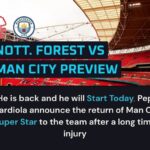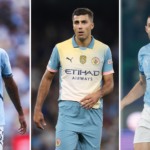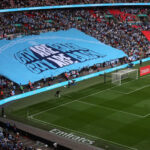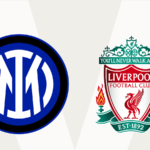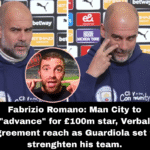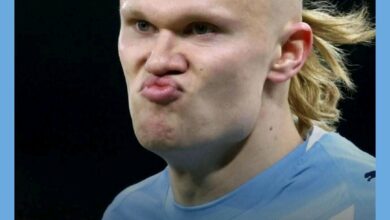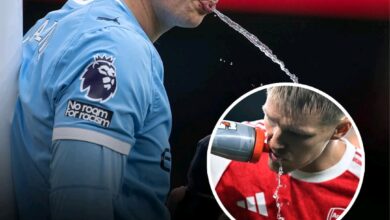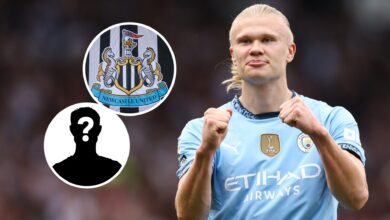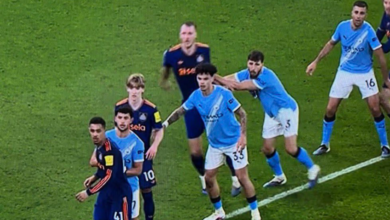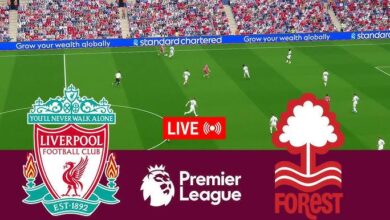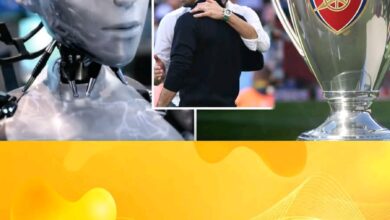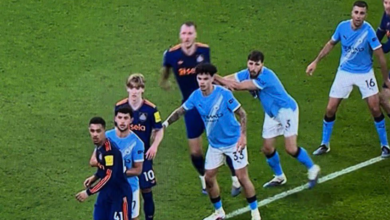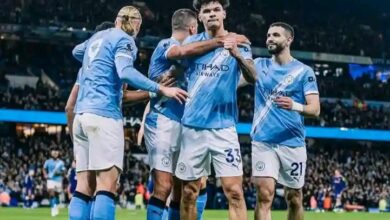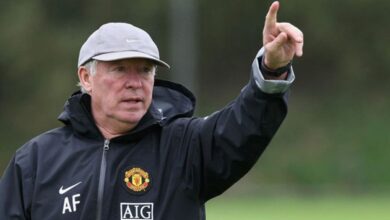Man City XI vs Nottingham Forest: Comprehensive FA Cup Semi-Final Preview

The weight of expectation hangs heavy over Manchester City as they prepare to face Nottingham Forest in Sunday’s FA Cup semi-final at Wembley Stadium. What was once viewed as a potential stepping stone in an ambitious treble defense has now transformed into City’s final opportunity for silverware this season. The clash represents more than just a semi-final—it’s a pivotal moment that could either salvage something tangible from a campaign of unfulfilled promise or compound what would be considered a disappointing season by the lofty standards established at the Etihad.
Pep Guardiola’s men enter this encounter carrying the scars of an inconsistent campaign, yet buoyed by recent hard-fought victories over Crystal Palace, Everton, and fellow FA Cup semi-finalists Aston Villa. However, their injury concerns continue to cast shadows over team selection, particularly regarding their Brazilian goalkeeper Ederson, whose recurring groin problem remains a significant worry for City’s technical staff.
Ederson’s Availability Remains in Question
The uncertainty surrounding Ederson’s fitness status poses perhaps the most pressing selection dilemma for Guardiola. Having limped off during City’s dramatic 5-2 victory over Crystal Palace, the Brazilian international subsequently missed crucial fixtures against Everton and Aston Villa. When pressed about Ederson’s availability for the Forest clash, Guardiola remained characteristically non-committal: “We’ll see. Eddie is coming back training a little bit. But I don’t know if he’ll be ready for this game, hopefully the next one.”
In Ederson’s absence, Stefan Ortega has deputized capably between the posts, delivering assured performances that have reinforced his status as one of the Premier League’s most reliable backup goalkeepers. The German’s distribution skills and commanding presence have provided reassurance during this period of enforced change, with veteran Scott Carson offering experienced cover on the bench.
The decision between rushing Ederson back for such a crucial fixture versus entrusting Ortega with Wembley responsibilities exemplifies the challenging balance Guardiola must strike between short-term necessity and longer-term planning. While cup competitions traditionally offer opportunities for rotation, the magnitude of this fixture—and its importance to City’s season—may tempt the Catalan coach to risk his first-choice goalkeeper if medically cleared.
Defensive Options Limited But Stabilizing
City’s defensive resilience has been tested throughout the season, with injuries periodically depleting Guardiola’s options. The situation remains challenging as Sunday approaches, with both John Stones and Nathan Ake continuing their rehabilitation from thigh and foot problems respectively. Despite making progress in their recovery programs, neither is expected to feature at Wembley, leaving Guardiola to select from a restricted defensive pool.
Ruben Dias and Manuel Akanji have formed a consistent central defensive partnership in recent weeks, displaying the composure and tactical intelligence that has characterized City’s best defensive performances under Guardiola. Their continued availability represents a significant positive for City’s backline stability, particularly given the aerial threat Forest will likely pose from set-pieces.
At full-back, Kyle Walker’s experience and pace remain vital weapons against transition threats, while Joško Gvardiol’s adaptation to Premier League football continues to accelerate—his forward runs increasingly becoming a prominent feature of City’s attacking patterns. The Croatian’s developing understanding with City’s left-sided attackers offers an additional dimension that could prove decisive in breaking down Forest’s anticipated defensive structure.
Midfield Engine Room: Compensating for Rodri’s Absence
The season-defining anterior cruciate ligament injury suffered by Ballon d’Or winner Rodri against Arsenal in September fundamentally altered City’s midfield dynamic. His absence has been keenly felt in terms of both defensive stability and progressive passing, forcing Guardiola to continually recalibrate his midfield structure. However, recent updates suggest potential for optimism, with the Spaniard making encouraging progress in his rehabilitation.
“Every training session he does with us, he does well,” Guardiola noted when discussing Rodri’s recovery trajectory. Though Sunday’s semi-final will certainly come too soon for the influential midfielder, his potential availability for season-concluding fixtures represents a significant psychological boost for the squad.
In the interim, Mateo Kovačić has admirably stepped into the considerable void left by Rodri’s absence, offering intelligent positional play and press-resistance, albeit with a slightly different profile. The Croatian international’s partnership with İlkay Gündoğan has developed promising chemistry, providing City with midfield control if not the same defensive assurance Rodri typically delivers.
Kevin De Bruyne’s creative influence remains fundamental to City’s attacking patterns, particularly in high-stakes knockout fixtures where his ability to unlock defenses with unexpected passing angles often proves decisive. The Belgian’s relationship with Phil Foden—whose technical development continues to reach new heights—offers City a midfield connection capable of producing moments of inspiration even against the most organized defensive structures.
Forward Line: Life Without Haaland
The ankle injury sustained by Erling Haaland during City’s quarter-final victory over Bournemouth represented a significant blow to their attacking potency. The Norwegian striker’s remarkable goal record—continuing the extraordinary standards set during his debut season in England—has been a fundamental component of City’s offensive threat throughout the campaign.
While initially feared to be sidelined for up to seven weeks, recent updates from Guardiola suggest Haaland’s recovery is progressing positively. “He feels better,” the City manager revealed. “It’s not a comfortable injury. You have some twist in your ankle and then taping. It’s not comfortable. He’s not a small guy but he’s getting better step by step. Still, he doesn’t train with the team but we will see how he does.”
Despite this cautious optimism, Sunday’s Wembley showdown will almost certainly come too soon for Haaland’s inclusion, leaving Guardiola to continue adapting his forward line. Recent fixtures have seen Julian Alvarez deployed as the central attacking reference point, with the Argentine World Cup winner offering intelligent movement and combination play, albeit with a stylistic profile distinctly different from Haaland’s direct physicality.
The continued excellent form of Jeremy Doku provides City with explosive pace and one-on-one capability in wide areas—attributes that could prove particularly valuable against Forest’s defensive structure. The Belgian winger’s ability to disrupt defensive organization through individual skill represents a different but equally effective attacking mechanism compared to City’s typical positional play approach.
Jack Grealish’s gradual return to full sharpness following injury disruptions earlier in the season adds further options to City’s attacking arsenal. The England international’s ball retention skills and ability to draw fouls in dangerous areas offer tactical variety, particularly in managing game tempo during high-pressure knockout fixtures.
Nottingham Forest: Determined Underdogs With Nothing to Lose
While focus naturally centers on City’s injury concerns and selection dilemmas, Nottingham Forest arrive at Wembley as motivated underdogs with significant momentum of their own. Their Premier League form has improved considerably in recent months, building resilience and confidence that makes them dangerous cup opponents.
Forest’s counter-attacking prowess represents their most obvious threat, with pace in transition and set-piece danger their likely routes to creating scoring opportunities. The direct running of Anthony Elanga and Callum Hudson-Odoi offers Forest clear outlets when transitioning from defense to attack, while Morgan Gibbs-White’s creative intelligence could exploit any structural imbalances in City’s defensive organization.
Nuno Espírito Santo’s tactical approach will doubtless emphasize disciplined defensive shape, with Forest likely to employ a mid-block structure designed to frustrate City’s build-up play before springing forward with vertical transitions when opportunities arise. Their recent performances against other top-six opposition suggest they will be no passive participants in this semi-final encounter.
Tactical Considerations for Guardiola
The specific challenges presented by Forest’s approach, combined with City’s personnel limitations, create several tactical questions for Guardiola to resolve. Central among these is whether to maintain the possession-dominant approach that typically characterizes City’s play or adopt a more direct style that leverages the pace of players like Doku and Foden to exploit transition moments.
Set-piece situations may prove particularly significant given both teams’ recent defensive vulnerabilities in these scenarios. City’s reduced physical presence without Haaland could potentially be exploited by Forest’s aerial specialists from dead-ball situations, while conversely, the precision delivery of De Bruyne offers City their own set-piece threat.
Game management will be another crucial consideration for Guardiola, particularly given the emotional significance this fixture carries for City’s season. Balancing the urgency to secure progression with the patience required to break down organized opposition represents a delicate equilibrium that often defines successful cup campaigns.
The Psychological Dimension
Perhaps most intriguing is the psychological dimension surrounding this encounter. For City, this represents the final opportunity to secure silverware from a season that began with treble-defending ambitions. The pressure associated with potential trophy-less campaigns is unfamiliar territory for many within this squad, creating unique mental challenges.
Conversely, Forest approach this semi-final unburdened by expectation, potentially allowing them to play with greater freedom and expression. The psychological advantage of “nothing to lose” status should not be underestimated in knockout competitions, particularly when combined with the one-off nature of Wembley occasions.
Predicted Manchester City Lineup
Given the various injury concerns and tactical considerations outlined, Guardiola is likely to field his strongest available XI while maintaining certain structural principles that have underpinned recent performances:
Formation: 4-3-3
Goalkeeper: Stefan Ortega Defense: Kyle Walker, Manuel Akanji, Ruben Dias, Joško Gvardiol Midfield: İlkay Gündoğan, Mateo Kovačić, Kevin De Bruyne Attack: Bernardo Silva, Julian Alvarez, Phil Foden
Substitutes: Scott Carson, Rico Lewis, Manu Akanji, Kalvin Phillips, Matheus Nunes, Jack Grealish, Jeremy Doku, Oscar Bobb, James McAtee
This selection balances experience with tactical flexibility, enabling City to adjust their approach as the match situation develops. Bernardo Silva’s tactical intelligence allows him to operate either as a wide attacker or additional midfield presence, while Foden’s positional fluidity provides creative possibilities across the front line.
Conclusion: Defining Moment in City’s Season
As Manchester City prepare to walk out at Wembley on Sunday, they do so carrying more than just the weight of semi-final pressure. This fixture represents a potential inflection point for their season—an opportunity to maintain realistic trophy ambitions and sustain momentum heading into the campaign’s final weeks.
For Guardiola, whose meticulous attention to detail has defined his managerial career, the preparation for this encounter will focus not just on tactical structures but on emotional management. Harnessing the squad’s determination to avoid a trophy-less season without allowing pressure to inhibit performance represents perhaps his most significant challenge.
The absence of key figures like Ederson, Rodri, and Haaland undoubtedly complicates City’s task, but also offers opportunities for others to step forward at crucial moments. Throughout Guardiola’s tenure, City’s success has been built not just on individual brilliance but on systemic excellence—a collective philosophy that transcends dependence on specific personnel.
As referee Michael Oliver signals for kick-off beneath the Wembley arch, the narrative of Manchester City’s season hangs in the balance. Ninety minutes—possibly 120 plus penalties—to determine whether this campaign will be remembered as one of admirable resilience or unfulfilled potential. For a club and manager defined by relentless pursuit of excellence, the stakes could scarcely be higher.
